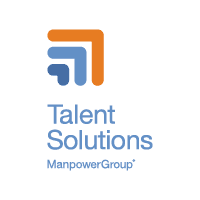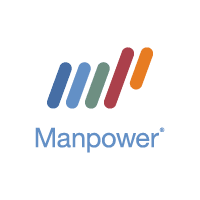Globalisation, digital transformation and worldwide crises: the disruptive developments of recent years have greatly altered the demands placed on HR departments. As a result, human resources are becoming increasingly crucial for both the businessand corporate strategy of companies.
In concrete terms, this means that you as a HR director must encourage your teams to be creative in the future, while you yourself must reflect on a larger scale how decisions influence the development of the overall organisation.
Important topics for HR include sustainable talent planning, the question of how business units can cooperate in a manner that generates value add, and the search for tomorrow’s working models.
A useful tool on this journey is modern organisational development. In this blog post, we provide you with a brief overview of how you can effectively use this tool in HR to prepare yourself for the challenges of the future.
What is organisational development?
Generally speaking, organisational development deals with the question of how changes can be best promoted in an organisation. In this context, organisational development is regarded as a holistic, people-centric approach.
The overarching goal of organisational development is to create conditions in a company at the structural, cultural and strategic levels that enable employees not only to withstand the demands of a constantly evolving business world, but also become assets for the future of companies. This is the only way for businesses to become truly capable of change and remain open to change processes.
Organisational development in HR and its goals
If we break organisational development down to just focus on the HR function, it has the task of establishing a transformed working environment within a company to ensure the future viability of that organisation.
Organisational development regards the decisive levers for achieving this goal as:
The involvement of employees in this process by allowing them to proactively co-design the corporate strategy and culture in a flexible and participatory manner
The development of sustainable talent planning by promoting core values in the company and participation in day-to-day work that is practiced at all levels
The targeted change of in-house work processes, which can range from workplace design to the creation of new work models.
The future task of organisational development
This brief description of organisational development in HR makes it clear that the HR function will have to take on more tasks in the coming years and, in turn, acquire new skills to do so. Companies are facing the challenge of upgrading “Human Resources” to a “People and Organisation” function.
HR leaders should prepare for this development in good time. They benefit from the fact that they are there to accompany and support people during changes while simultaneously having the ability to keep an eye on the structural framework conditions of a company.
Beyond that, however, they’ll need a deeper understanding of digital processes in the future and must learn to take more data-driven decisions with an eye on organisational design.
Organisational development in HR: An ongoing process
Organisational development is not a one-time project that can be filed away after a certain period. Rather, you must implement organisational development in HR as a continuous process that – especially in growing companies – must be reflected and reconsidered again and again based on the respective status quo of the organisation.
The six phases of organisational development
Organisational development tries to design its methods and means in as rational a manner as possible. This means it also works in a strongly data-driven manner to evaluate change processes and initiate measures based on these.
We recommend you supplement general statistical data from the HR function with data from confidential employee surveys and feedback. Each process within organisational development can be divided into six different phases:
Identify action area: Triggers for a process can come from management, be brought to HR in the form of conflicts or be derived from business development.
Analyse action area: The second step is to analyse the action area to understand it better. This is another area where data-driven processes are worth their weight in gold.
Search for the right solution: Before you get the ball rolling, you must first consider the way in which you want to become active in the respective action area. No single standard solution exists for all cases, although there are various standardised frameworks that are suitable for different action areas.
Develop measures: You now devise concrete measures that you want to implement as a company. At the same time, you should define success criteria to enable you to assess the effectiveness of your measures later on.
Implement measures: Simply implementing measures is not the only thing required; you should also pay attention to managing that implementation to ensure it is successful in the end.
Evaluate measures: In the last step, you must form as objective a picture as possible of the measures implemented. To do this, use your success criteria and compare the action area before and after you introduce the measures.
Bottom line: Why HR directors should engage with OD
The key benefit that organisational development has for the HR function is the central value that people occupy in this model. This model enables them to initiate and implement changes in their company that generate tangible added value for employees and the organisation alike.
On the other hand, organisational development also makes change processes in companies more transparent for employees, thereby increasing the general acceptance of change. In other words, a win-win situation for all parties.
Organisational development does involve certain intellectual and organisational challenges at the outset. In the long term, however, it represents a fruitful field of work for companies that want to remain fit for the future. Experis supports you as an HR decision-maker on every step of this journey towards holistic HR management. Get in touch today.


